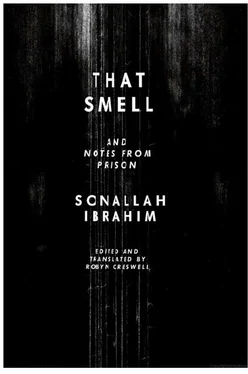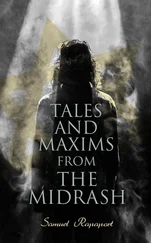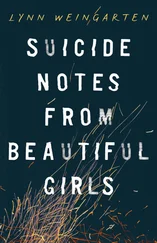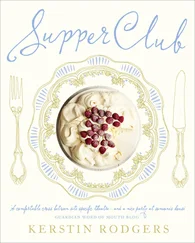Sonallah Ibrahim - That Smell and Notes From Prison
Здесь есть возможность читать онлайн «Sonallah Ibrahim - That Smell and Notes From Prison» весь текст электронной книги совершенно бесплатно (целиком полную версию без сокращений). В некоторых случаях можно слушать аудио, скачать через торрент в формате fb2 и присутствует краткое содержание. Год выпуска: 2013, Издательство: New Directions, Жанр: Современная проза, на английском языке. Описание произведения, (предисловие) а так же отзывы посетителей доступны на портале библиотеки ЛибКат.
- Название:That Smell and Notes From Prison
- Автор:
- Издательство:New Directions
- Жанр:
- Год:2013
- ISBN:нет данных
- Рейтинг книги:4 / 5. Голосов: 1
-
Избранное:Добавить в избранное
- Отзывы:
-
Ваша оценка:
- 80
- 1
- 2
- 3
- 4
- 5
That Smell and Notes From Prison: краткое содержание, описание и аннотация
Предлагаем к чтению аннотацию, описание, краткое содержание или предисловие (зависит от того, что написал сам автор книги «That Smell and Notes From Prison»). Если вы не нашли необходимую информацию о книге — напишите в комментариях, мы постараемся отыскать её.
Notes from Prison
That Smell and Notes From Prison — читать онлайн бесплатно полную книгу (весь текст) целиком
Ниже представлен текст книги, разбитый по страницам. Система сохранения места последней прочитанной страницы, позволяет с удобством читать онлайн бесплатно книгу «That Smell and Notes From Prison», без необходимости каждый раз заново искать на чём Вы остановились. Поставьте закладку, и сможете в любой момент перейти на страницу, на которой закончили чтение.
Интервал:
Закладка:
SONALLAH IBRAHIM
CAIRO, 1986
* See Fi-l-Thaqafa al-Misriyya [On Egyptian Culture] (Cairo: Dar al-Fikr al-Jadid, 1955).
NOTES FROM PRISON
All footnotes in this translation are the author’s, from Yawmiyyat al-Wahat (2004).
1962 April
Cairo commits suicide. The fire of ’52. The city that rose up and fell destructively on itself. Story of freedom in the streets, among the people. The great, enormous city from every angle, its birthing pains.
The hero and the masses — Plekhanov — the cult of personality.
Torture: and since that time he feels that wherever he walks, whether he’s coming in or going out, something will hit him, something will shock him. If someone surprises him, his muscles tense. He expects to be slapped or kicked.
June
The thing I seem furthest from, though I think about it all the time and hope to achieve it, is to deal with man from within. So many sentiments, so many strange and knotted interior operations.
Colors and their meanings. Red is love. Yellow jealousy. Blue sadness. Green loyalty. White purity. Purple yearning.
The writer’s path is full of sacrifices; everything must submit to his art. Pushkin wasted five years of his life chasing after his girlfriend while she toyed with him. The writer must not allow anything to get in the way of his work or his art. He is a saint and a martyr.
Here is the artist’s role in Egypt today. Not to write something enjoyable merely for its aesthetic value. Not simply to lose oneself in philosophical and intellectual issues. Not to live captive to one’s individual experience, which could lead to loneliness or to feelings of alienation and absurdity. Not to be content with recording — impressionistically, neutrally, superficially — what happens in society. Instead, the Egyptian artist must work actively and with others. He must dive into the depths of the people and the depths of the individual. He must reveal the way forward, he must choose the direction and change the direction. He must lead and play a role in everyday life, armed with his technique, personal experience, self-awareness, persistence, and the readiness to sacrifice.
The writer is responsible for every word he writes.
“When people talk, listen. Most people don’t listen.” Advice given by Ernest Hemingway in a letter to a young writer.
“The Beacons,” at the Twenty-Second Congress of the Communist Party of the Soviet Union:
— Alexander Tvardovsky: “The hero of my tale, whom I love with all my heart, whom I have tried to depict in all his beauty, who was, is, and will be beautiful, is the truth.” Tolstoy.
— “Those writers who hurry to respond to the demands of the day, who apprise us of contemporary events, deserve the sobriquet ‘skimmers.’ For them, the building of the Volga Canal doesn’t merit more than two or three on-the-spot articles, dashed-off and superficial. A mirroring of events and nothing else. But the same subject cost Vladimir Fomenko ten years of hard work. I cannot hide my fear each time I see writers hurrying to spread the news before the events and facts have matured in their minds, before they have experienced a deep need to communicate with the reader.”
— Sholokhov: “A writer who speaks of collective farms should know no less than a local agronomist.”
— I am a Communist first, a writer after that.
November
“The true material of film is the monologue,” Eisenstein.
No real interest in people. Each looks out for himself. Egotism. Where is the spirit of sacrifice, of consciousness-raising?
Psychological problems. Theft. The nature of conditions. Persistent belief in the impossibility of a long-term sentence.
December
The mouth, like the prison, contains, when closed, living things.
A story in two sections: in the first, people enter and do what they do and their actions appear strange, spontaneous, random, futile — in the second section, the same people behaving reasonably, or acting out an interpretation of their previous behavior, or of the laws that governed all those actions that had seemed random, futile, or accidental.
There is a law that governs everything, but we do not know it. Again, the question of coercive conditions, of a power exterior to man. The law of probabilities?
The epic theater of Brecht.
How little I know.
1963 February
One cannot say, with the Surrealists: The world is going to pieces! The question of content is not out of bounds to the artist. We can’t keep saying, “There’s no longer anything to write about.” The conditions in our country do not allow it. A hundred topics await. A hundred horizons open every day.
[.] a negative and dangerous aspect. We will pass through a Stalinist experience. The new generation can’t take up politics as a battle of ideas. It’s on the verge of becoming a generation of cowards. They’ve rung down the curtain on the history of revolutionary struggle before the revolution of 1952. [.] The men of the regime are sincere, but they have been schooled in fear. How did revolutionary workers come to hate their country and rejoice at its difficulties?. How have the consciences of so many been destroyed by acts of terror? The humiliation of man. Three months of terror, January — March, 1959.*
Impressions of Mustafa Sweif’s book.**
— Thought Under Pressure (or, the negative aspect of extremist engagement ). Speaking about what he calls the renunciation of censorship over thought, Freud says some people suffer an inability to set free their spontaneous thoughts. They cannot renounce their critical capacity. This is because desirable thoughts (the artist’s thoughts are of this type, since they are essentially libidinal) create a violent resistance, which tries to bar their entry into consciousness. The condition for poetic creation, according to Schiller, is very like what Freud says. In one of his letters to Korner, in which he replies to a friend’s complaint about the weakness of his creative powers, Schiller writes, “The reason for your complaint lies, it seems to me, in the constraint which your intellect imposes upon your imagination. Apparently it is not good if the intellect examines too closely the ideas already pouring in at the gates. Regarded in isolation, an idea may be quite insignificant, but it may acquire importance from an idea that follows it; perhaps, in a certain collocation with other ideas, which may seem equally absurd, it may be capable of furnishing a very serviceable link. The intellect cannot judge all these ideas unless it can consider them in connection with these other ideas. In the case of a creative mind, it seems to me, the intellect has withdrawn its watchers from the gates, and the ideas rush in like waves, and only then does it review and inspect the multitude.” From Freud’s The Interpretation of Dreams .
Al-Ahram , February 13, 1963, New Tendencies, “Real Cinema, No Actors, No Scripts, No Studios.” Since 1919, some cinéastes have dreamt of a cinema not shot in the studio and requiring no actors. Their idea was basically that the camera should be a tool in the director’s hand just as the pen is for the writer. If the writer can rush with his pen to record his reactions to events, why can’t the director do the same? Why not take the camera into the street, into the places where people live? If he happens to come across something he’d like to “comment” on, he grabs his camera and records his impression. This is what the Soviet Vertov did, followed by the American Flaherty, and then the two Frenchmen, Epstein and Vigo. Why did they fail to establish a school? Contemporary French cinéaste Jean Rouch says, “The failure stems from a confusion of reportage and drama. They recorded the appearances of life as it is, while the real cinéaste relies on selection. When we carry a camera around and run into something, we put ourselves physically in front of that something. We ‘focus’ our lens on a particular facet of it, rather than filming the whole. We shut out some elements and concentrate on others. This is obvious from the composition of the shot. After shooting any number of things, we have a film that might take twenty hours to show, from which we select or edit ninety minutes’ worth. We ‘focus’ our idea about the subject, just as a writer prepares his draft for publication.” Rouch applies this principle to African societies in Abidjan (Ivory Coast). He was an ethnographer sent to Africa by the French Anthropological Society and based on his experience filming the social life of blacks, he developed a method that made the director the sole author of the film and the reality he recorded its primary subject matter. By selecting from among the elements of struggle in each instance, and by foregrounding that choice by means of montage and cadrage, he transformed the camera into a human eye, one that selects from reality whatever tallies with the director’s point of view. In this way, he revealed a new consciousness of reality, one we wouldn’t have experienced by looking at things while they were mixed in with the events of ordinary life. Rouch’s films — Chronicle of a Summer; Me, a Black Man ; and The Human Pyramid — forge a new path for cinema, which critics call “cinema verité,” or real cinema. (Zavattini’s experience. Cameras in the square, facing the police station.)
Читать дальшеИнтервал:
Закладка:
Похожие книги на «That Smell and Notes From Prison»
Представляем Вашему вниманию похожие книги на «That Smell and Notes From Prison» списком для выбора. Мы отобрали схожую по названию и смыслу литературу в надежде предоставить читателям больше вариантов отыскать новые, интересные, ещё непрочитанные произведения.
Обсуждение, отзывы о книге «That Smell and Notes From Prison» и просто собственные мнения читателей. Оставьте ваши комментарии, напишите, что Вы думаете о произведении, его смысле или главных героях. Укажите что конкретно понравилось, а что нет, и почему Вы так считаете.












